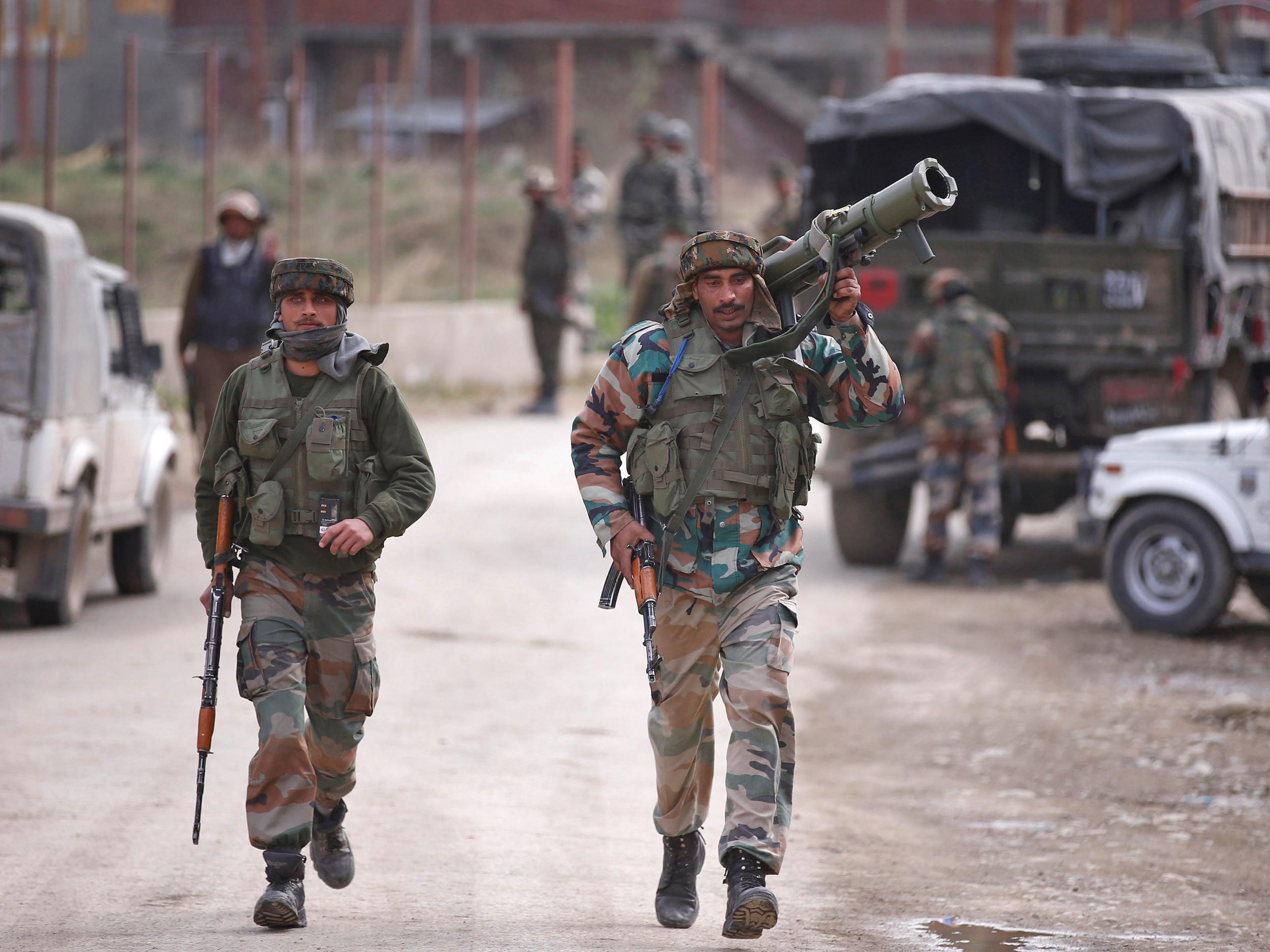India prepared to go to war with China and Pakistan simultaneously, says top general
Army chief Bipin Rawat says stand-off with Chinese troops on Himalayan border could snowball into larger conflict, with neighbouring nuclear power ready to pounce

Your support helps us to tell the story
From reproductive rights to climate change to Big Tech, The Independent is on the ground when the story is developing. Whether it's investigating the financials of Elon Musk's pro-Trump PAC or producing our latest documentary, 'The A Word', which shines a light on the American women fighting for reproductive rights, we know how important it is to parse out the facts from the messaging.
At such a critical moment in US history, we need reporters on the ground. Your donation allows us to keep sending journalists to speak to both sides of the story.
The Independent is trusted by Americans across the entire political spectrum. And unlike many other quality news outlets, we choose not to lock Americans out of our reporting and analysis with paywalls. We believe quality journalism should be available to everyone, paid for by those who can afford it.
Your support makes all the difference.India’s army chief has said the country should be prepared for a potential two-front war given China is flexing its muscles and there is little hope for reconciliation with Pakistan.
General Bipin Rawat referred to a recent 10-week standoff with the Chinese army in the Himalayas that ended last week. He said the situation could gradually snowball into a larger conflict on India’s northern border. Rawat said Pakistan on the western front could take advantage of such a situation.
The Press Trust of India news agency quoted Rawat’s remarks at a seminar organised by the Center for Land Warfare Studies, a thinktank in New Delhi.
India fought a war with China in 1962 and three wars with Pakistan, two of them over control of Kashmir, since securing independence from Britain in 1947. All three countries are nuclear powers.
Rawat said credible deterrence did not take away the threat of war. “Nuclear weapons are weapons of deterrence. Yes, they are. But to say that they can deter war or they will not allow nations to go to war, in our context that may also not be true,” the news agency quoted him as saying.
India last week agreed to pull troops from the disputed Doklam plateau high in the Himalayas, where Chinese troops had started building a road. The 10-week standoff was the two nations’ most protracted in decades, and added to their longstanding strategic rivalry.
“We have to be prepared. In our context, therefore, warfare lies within the realm of reality,” Rawat said.
His comments came a day after India’s Prime Minister, Narendra Modi, and China’s president, Xi Jinping, agreed on a “forward-looking” approach to Sino-India ties, putting behind the Doklam standoff.
Xi and Modi met on the sidelines of a summit of the Brics emerging economies in the south eastern Chinese port city of Xiamen. The Brics nations are Brazil, Russia, India, China and South Africa.
AP
Join our commenting forum
Join thought-provoking conversations, follow other Independent readers and see their replies
Comments